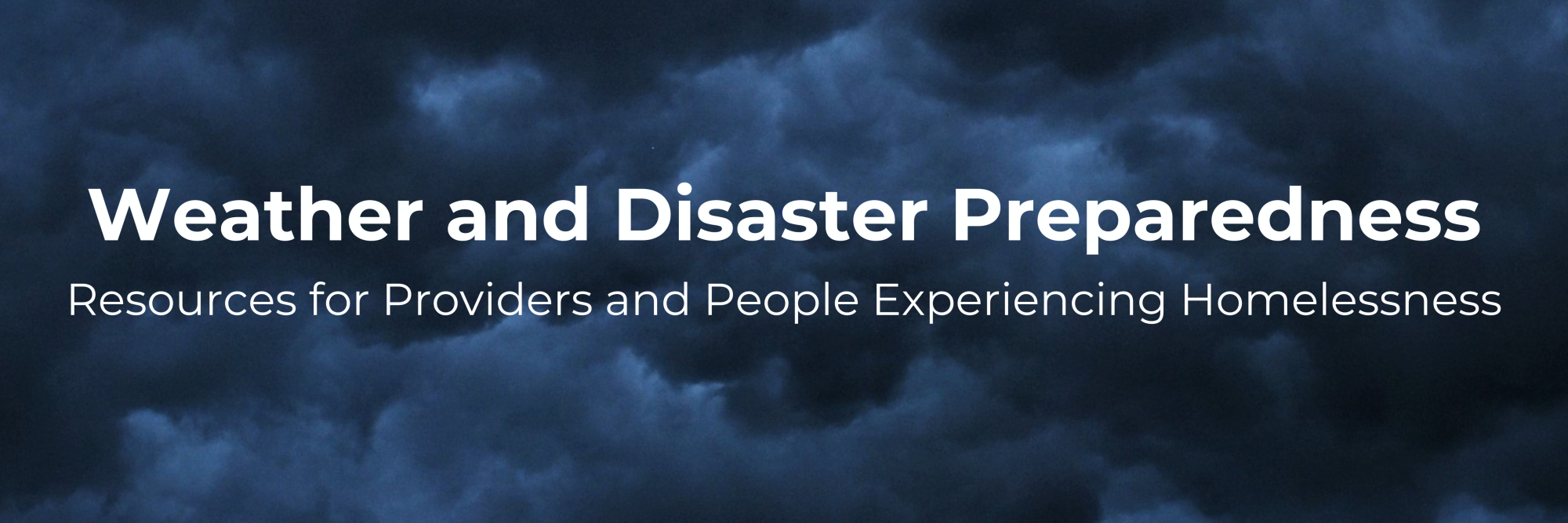
Sacramento Steps Forward (SSF) works to reach people experiencing homelessness (PEH) in the Sacramento community who would benefit from having access to emergency preparedness, response, and recovery information. Though our partnership with the Governor’s Office of Emergency Services (Cal OES) and with the Sacramento Region Community Foundation (SRCF), which began in 2022, formally ended in December 2023, we will maintain relevant resources below from this partnership and future efforts to ensure accessible information for PEH and people working with PEH about disaster preparedness and weather resources.
Resources that people experiencing homelessness can use in preparation for and in times of disaster. See the tabs for additional resources. For questions, please email our team.
Emergency preparedness resources that can be used by local entities (e.g., agencies, community centers, shelters) that have established physical sites to serve people experiencing homelessness in times of crisis and disaster. See the tabs for additional resources. For questions, please email our team.
Sacramento Steps Forward is a private, non-profit 501(c)(3) charity serving the Sacramento region. EIN# 27-4907397